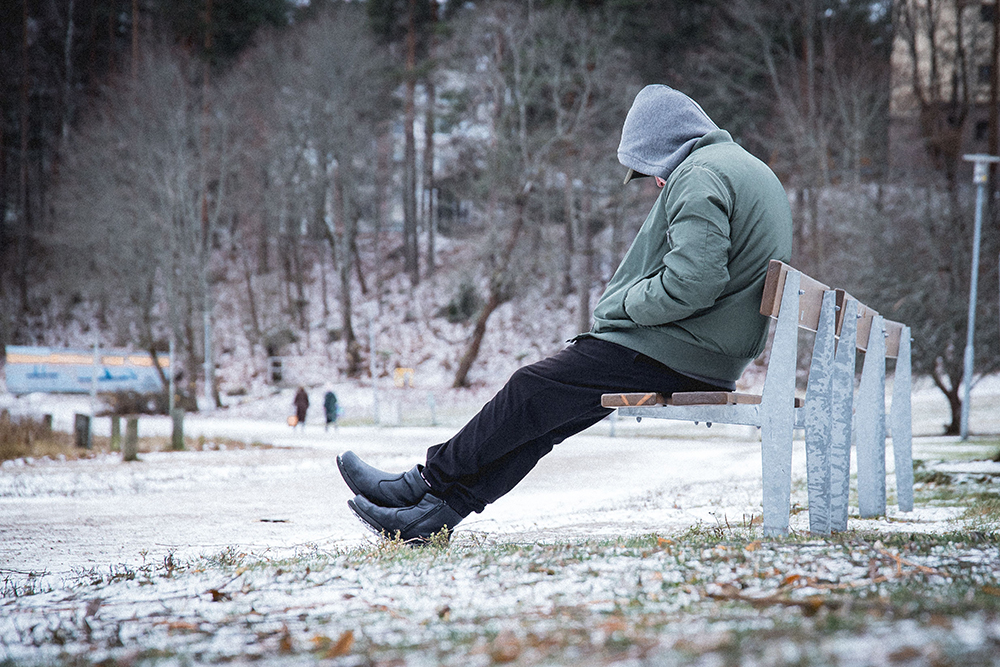The changing of the four seasons can be beautiful. But it can be hard, too. Even though it can be wonderful to see the leaves change colors in the fall and the first snow of the winter, a change in the seasons can also bring a change in your mental health, and not always for the better.
Seasonal depression can make it difficult to enjoy a change of weather or reflect on your year so far. It’s a diagnosable mental health disorder that can interfere with your quality of life. But the good news is that you don’t have to just wait for the season to pass to feel positive emotions again. We’re here to talk about how you can deal with seasonal depression.
Read on to learn about the basics of seasonal depression and the treatments that can help you deal with it.
What is seasonal depression?
Seasonal depression refers to seasonal affective disorder, or SAD. This is a mood disorder that’s a type of depression. It’s triggered when a season changes from one to the next, recurring at about the same time each year.
Seasonal depression is especially common during fall and winter months in areas where there’s less sunlight and the days are shorter than they are the rest of the year. That’s why residents in the northern states in the U.S., such as Washington state and Oregon, are more likely to experience SAD than those in states that experience abundant sunshine all year round, such as Florida and Arizona.
Symptoms of seasonal depression include:
- Feelings of sadness and malaise.
- Fatigue.
- Social withdrawal and isolation.
- Low energy levels.
- Change in appetite.
- Concentration issues.
Many people who experience depression can feel overwhelming feelings of loneliness, but you’re not alone. Seasonal affective disorder affects up to 5% of the adult population in the U.S. It also tends to be more common in women than men.
How to deal with seasonal depression
Any sort of depression can make you feel overwhelming and consistent negative emotions that feel like they’ll never end. The good news is that the symptoms of seasonal depression tend to naturally fade away during the warmer months, such as the spring and summer months.
Even though seasonal affective depression symptoms go away on their own, they can still affect your overall quality of life when you’re experiencing them. That’s why it’s important to explore the treatment options that can help you deal with seasonal depression. There are some self-care options as well as some that will require the assistance of a licensed mental health provider:
- TMS — Seasonal depression can recur every year, which is why it can be frustrating if past treatments haven’t alleviated the symptoms. Transcranial magnetic stimulation (TMS) can be an effective option for treatment-resistant depression, meaning that the symptoms haven’t improved after at least two trials of antidepressants. TMS uses magnetic pulses to stimulate cell activity in underactive areas of the brain that are involved in mood regulation.
- Psychotherapy — Talk therapy can help people with any type of depression, including seasonal depression. A licensed clinical therapist can help you figure out the root of your depression as well as healthy coping mechanisms that can help you when the days get shorter and colder. A common therapy approach for depression is cognitive behavioral therapy, which focuses on adjusting how your thoughts, emotions and behaviors affect one another.
- Light therapy boxes — Since reduced sunlight is one of the leading triggers to seasonal depression, your provider may recommend a light therapy box, also known as bright light therapy. It uses light that’s similar to outdoor light and helps adjust the chemicals in your brain that contribute to your depression symptoms. Many professionals will recommend using 10,000 lux of light every day for 30 minutes at a time.
Active Path Mental Health can help you deal with seasonal depression
It can be difficult to enjoy the crisp fall air or playing in the snow with your loved ones when your mental health has taken a dip. While some people may be tempted to endure seasonal depression until the warmer months come around, you should explore the treatment options that are available. That’s where we come in.
Every season is a new beginning, and we want to make sure that you enjoy them. At Active Path Mental Health, we have both TMS and psychotherapy to help you deal with your seasonal depression symptoms.
Contact our team today for more information or to schedule an initial appointment.




